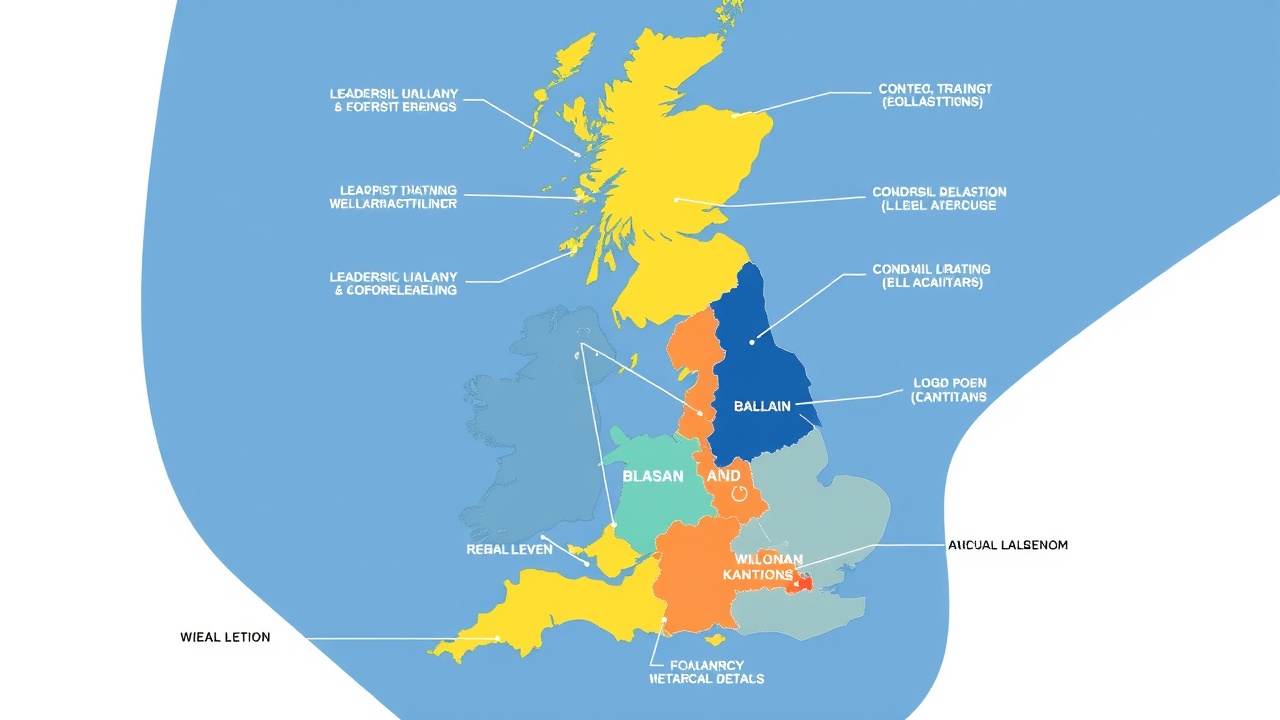
Amidst a turbulent few months, investment trusts with a focus on the UK have gained, while their global counterparts have stagnated
Which industries have been the main drivers of this adaptability to tariff disruption?
Some areas of the UK economy have proven resilient while the majority of the global market collapses due to tariffs.
The UK economy has been viewed with disapproval. That is justified in many ways: in March, borrowing by the UK public sector increased to 16 point 4 billion, which is 2 point 8 billion more than the previous year. The London stock market has seen a decline as companies lament the lack of interest in making investments. There are still many worries that the UK might go into recession, but they have subsided.
Are these anxieties exaggerated? Maybe. The UK's GDP grew by 0.7 percent in March, which was higher than the negative forecasts. Unlike its US counterpart, the Federal Reserve, the Bank of England has the flexibility to continue lowering interest rates because inflation is comparatively under control.
The UK aerospace industry and other sectors may benefit from increased European defense spending.
UK stocks have outperformed their international counterparts in terms of resilience, according to research from the Association of Investment Companies (AIC). The average UK All Companies investment trust increased by just over 10% in the year ending May 8th, while the average Global sector trust increased by 1%.
According to Annabel Brodie-Smith of the AIC, "it may be that the UK market has already started its rebound after several years of underperformance." "While we're not quite out of the woods, the stars may finally be aligning for UK companies with the signing of two trade agreements and declining interest rates.
According to trust managers polled by the AIC, the UK economy is well-positioned to benefit from the industries that fared the best during the tariff crisis.
Which industries have contributed to the resilience of the UK?
One major factor contributing to the UK's resilience is the makeup of the stock market, especially the FTSE 100.
According to Henderson High Income Trust (LON:HHI) portfolio manager David Smith, large-cap stocks in the UK market are generally in extremely defensive industries like consumer staples. Adding that "earnings are typically more resilient in an economic slowdown," he says of these sectors.
The defensive sectors, which comprise a large portion of the UK stock market, have become relatively undervalued as a result of the global stock markets' focus on growth stocks, such as the Magnificent Seven, for the past ten or more years.
Value investors like Alex Wright, manager of Fidelity Special Values, have an opportunity because of this.
In addition to carefully reintroducing exposure to real estate stocks and housing-related names, where demand seems to be stabilizing and valuations are still appealing, Wright says, "we have been finding new investment opportunities in domestically oriented cyclical areas, such as industrials, advertising, and staffing."
Despite the retail industry's negative reputation, Wright and other contrarians believe that this is the ideal time to invest in it. According to him, FSV has been expanding its reach to "retailers that specialize in expensive items like sofas and kitchens, where sales are typically 1025% lower than in the past." He claims that this industry may benefit in the future from improving growth prospects and the possibility of declining interest rates.
Although Wright doesn't name any specific stocks in this regard, Dunelm (LON:DNLM) might be one of them. Charles Luke, fund manager of Murray Income Trust (LON:MUT), emphasizes it.
"We think the business can maintain its market share in a fragmented market," Luke says. "The shares have a price-earnings ratio in the mid-teens and a dividend yield of about 4%. Because of the strength of the balance sheet, this has usually been augmented by an extra special dividend paid out each year.
The reasons why the UK economy is attractive in every field.
Looking back, the UK is a desirable market for investment trust managers in all industries for more general structural reasons.
Smith states that there are several reasons to invest in the UK right now. "The UK equity market's low initial valuation and discount to its long-term average and other international indices, particularly the US, help to offset the negative sentiment surrounding trade tensions.
Smith goes on to say that because the UK exports very little to the US, the effect of tariffs is less severe. The trade deal between the US and the UK, which was signed last week, also helps with that. It lowers the tariffs on certain auto exports to the US to 10%.
According to Luke, "the tariff shock is occurring at a time when the outlook for UK-listed companies is improving, food and energy prices are declining, pressures on UK consumers are ending, the labour market is still strong, and savings are high."
"International investors have consistently ignored UK stocks, despite the fact that they are valued attractively, particularly when compared to US stocks. Perhaps after years of monopolizing investment returns, the US equity market's allure is starting to fade.














Leave a comment on: The UK outperforms due to the investment trust sectors